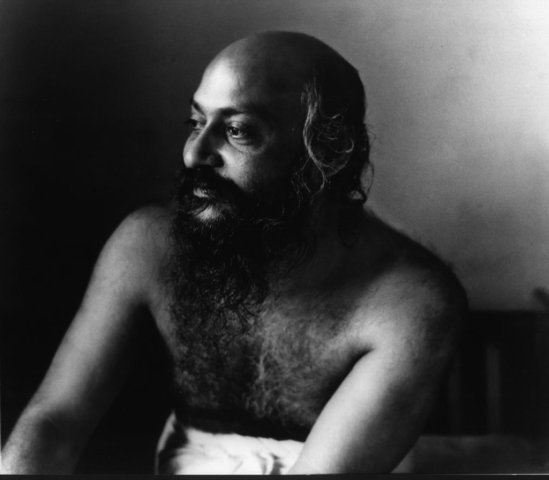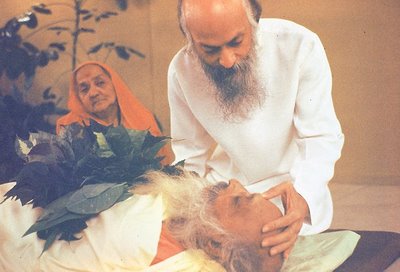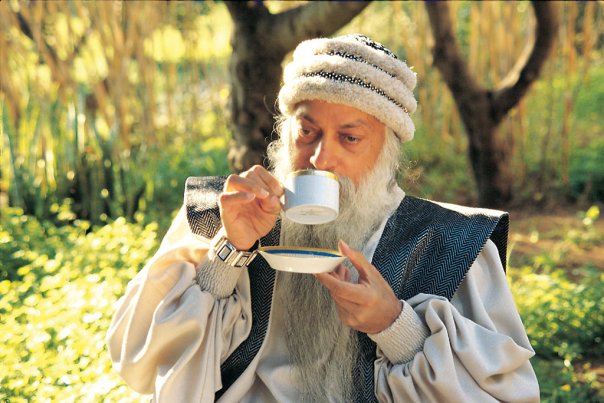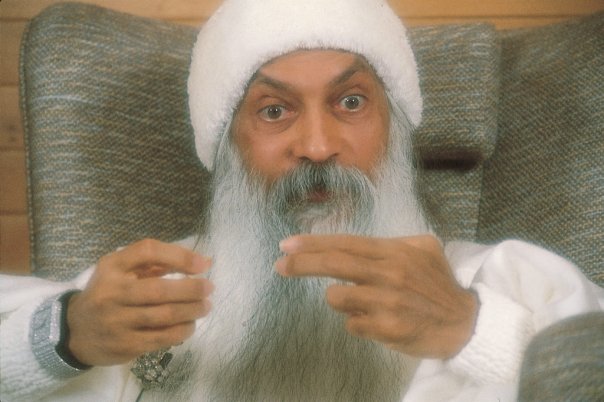Osho Quotes on Renunciation
- There is no renunciation in a premature mind. Maturity is needed, and maturity means you have lived life, known it to the very depth, and found it lacking. There is nothing in it, the journey is complete; you can live in the market, or you can go to the monastery. It doesn’t matter, it is all the same. Life is no longer an attraction: wherever you are it makes no difference. This point is the point of suicide. And this point is the point of SANNYAS. Suicide or SANNYAS: this is the alternative. And, unless your SANNYAS is an alternative to suicide, it is not very significant.
- Sannyas and meditation are enough, nothing more is needed. Sannyas changes your whole vision of reality. It helps you to drop all ritualistic religion, all serious religion. It helps you to become non-ritualistic, non-serious, it helps you to become playful, it helps you to take life as fun. It helps you to rejoice in existence, and through that rejoicing comes real renunciation.
- In the past it has been said again and again by the priests that if you renounce you will attain to bliss. I tell you just the opposite: if you become blissful there is renunciation. And that renunciation has a beauty of its own — because in your rejoicing, all that is non-essential starts dropping away — because you can see it is non-essential. The very seeing is the transformation. If after seeing you have to do something for transformation, then your seeing was incomplete, was not entire, was not total, was not real.
- Renounce knowledge! I teach you renunciation of knowledge. I don’t teach you renunciation of the world; that is stupid, foolish, meaningless! I teach you renunciation of knowledge.
- Your world has to be dropped; that is the only renunciation I require of you. I don’t say leave your wife, I don’t say leave your job, I don’t say leave your money; leave your anything, no! I simply say leave your private worlds of dreams. That is sannyas for me. The old sannyas was leaving this world, the visible. One goes to the Himalayas, leaves the wife and children; that is not the point at all. That is not the world to leave. How can you leave it? Even the Himalayas belong to this world. The real world which has to be renounced is the mind, the private dreaming world. If you renounce it, sitting in the market you are in the Himalayas. If you don’t renounce it, in the Himalayas also you will create a private world around you.
- How can you escape yourself? Wherever you go you will be with yourself. Wherever you go you will behave in the same way. Situations may be different but how can you be different? You will be asleep in the Himalayas. What difference does it make whether you sleep in Poona or you sleep in Boston or you sleep in London or in the Himalayas? Wherever you are you will be dreaming. Drop dreaming! Become more alert. Suddenly dreams disappear, and with dreams all miseries disappear.
- India has been renouncing, and a religion that renounces is false. A religion that makes you capable of celebrating to the optimum is the true religion. And this is the beauty of it: if you live life, a renunciation comes automatically. It happens — that is the nature. If you eat well, satiety comes. If you drink well, the thirst disappears. If you lived well, the clinging to life disappears. It has to be so. This is the law, the logos. If you have not lived well, then you always remain clinging, then you always dream about how to live. And if you have renounced this life you have to project another life. You need a permanent self, otherwise what will you do? You missed this life, and there is no other life? You need a permanent self. You have to believe and console yourself: “Okay, the body dies but the self never dies.”
- A false tradition of renunciation came into existence all over the world. Escape from the house and go to the monastery. Escape from the market, go to the Himalayas. Escape from the world! To the Himalayas you can go easily, but how can you escape from yourself? You will create the same world THERE — the same! It may be a miniature world, it may not be so vast, but you will do the same. YOU are the same — how can you do anything else?
- It is good to be in the world: that is the message of the Upanishads. The Upanishadic seers were not ascetic. Of course they renounced many things, but the renunciation came not through effort, it came through understanding, it came through meditation. They renounced the ego because they saw that it is just a manufactured entity by the mind. It has no reality, no substance in it; it is pure shadow, and to waste your life with it is stupid. To say that they renounced is not right; it will be better to say that because they became so aware it withered away on its own accord. They became non-possessive. It is not that they did not possess things, but they became non-possessive. They USED things. They were not beggars. They lived joyously, enjoying everything that was available to them, but they were not possessive, they were not clingers. That is true renunciation: living in the world and yet remaining absolutely non-possessive. They loved, but they were not jealous. They loved totally but without any ego trip, without any idea to dominate the other.
- The Upanishads are in tremendous love with life. They don’t teach renunciation, they teach rejoicing. They would have agreed with Jesus when Jesus says again and again to his disciples, “Rejoice! Rejoice! I say again to you rejoice!” The Upanishads have a very aesthetic approach towards life — not the approach of an ascetic but the approach of a poet, a painter, a musician, a dancer. Their approach is in no way pathological.
- To be a sannyasin means now you take the decision to grow. And this is the last decision. Now you will have to struggle, now you will have insecurity, you will have dangers, and you will have to fight and face them moment to moment. This moment-to-moment fight and struggle, this fighting into the unknown, this fight for the unknown, this living in the unknown, is the real renunciation.
- To decide to grow is a great renunciation — a renunciation of the security that is given to the seed, a renunciation of the wholeness that is given to the seed. But this security is at a very great cost. The seed is dead, it is only potentially living. It can live, or it can remain dead. Unless it grows, becomes a tree, it is dead. And as far as I know, human beings, unless they decide to grow, unless they take a jump into the unknown, are like seeds — dead, closed.
- The moment you start renouncing, you start shrinking. Rather than growing, rather than becoming vaster and infinite, you start shrinking into yourself. You lose all interest in existence, in love, because you are told to torture yourself. Renunciation from the world is another name for self-torture. And a man who is torturing himself — how can you expect him to dance? How can you expect him to be ecstatic? He is committing a slow suicide.
- I teach you love, not renunciation. I teach you celebration, not celibacy. I teach you to be natural, to be existential.
- I am against renunciation. I want buddhas to be here in the world doing all kinds of things. It was unfortunate in the past that buddhas escaped from the world. If they had remained in the world, we would not have been so barbarious. More humanity and more culture and more consciousness would have been available to us.




wow